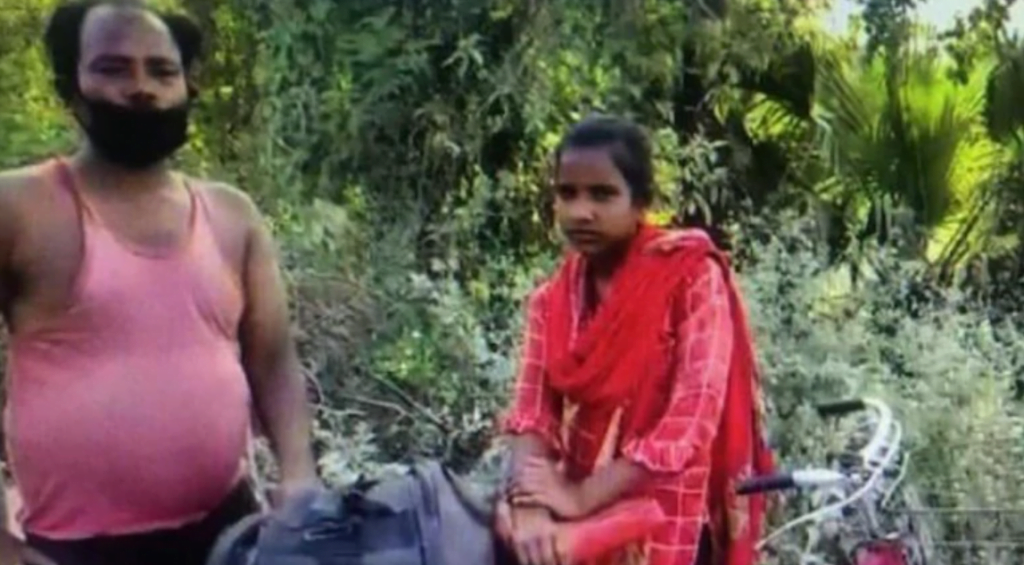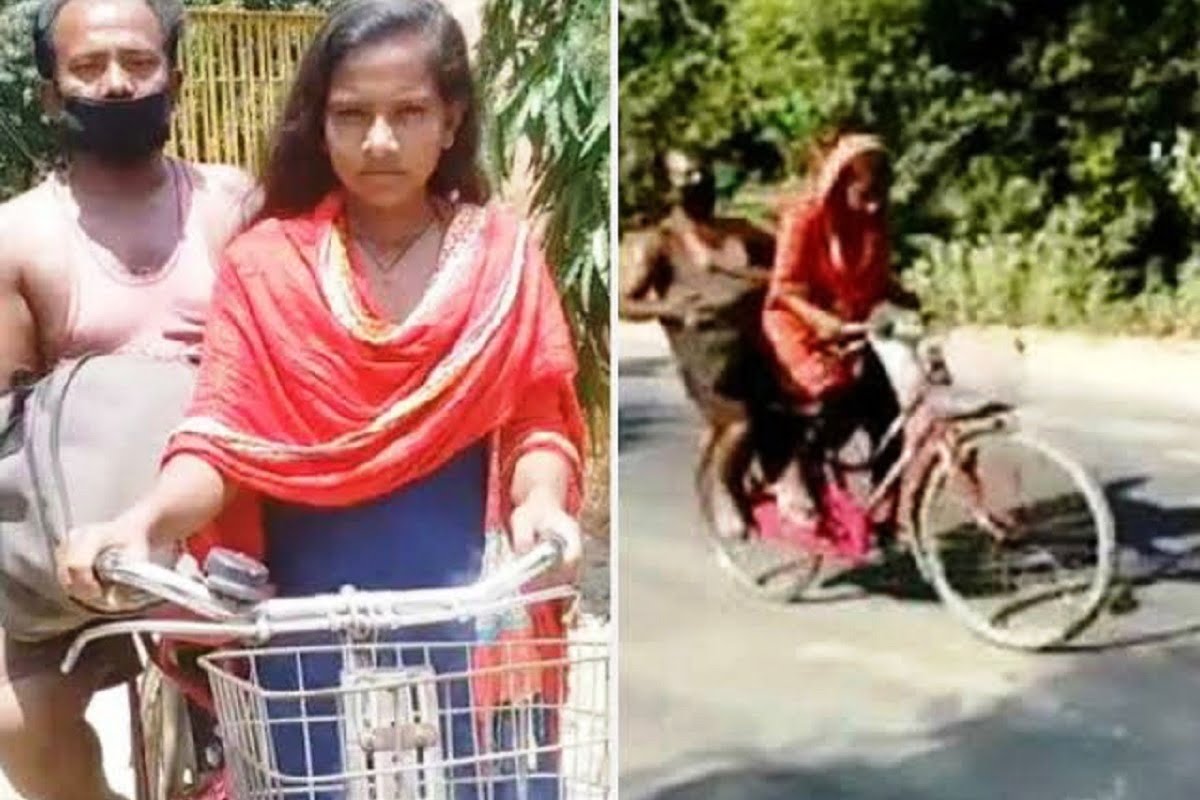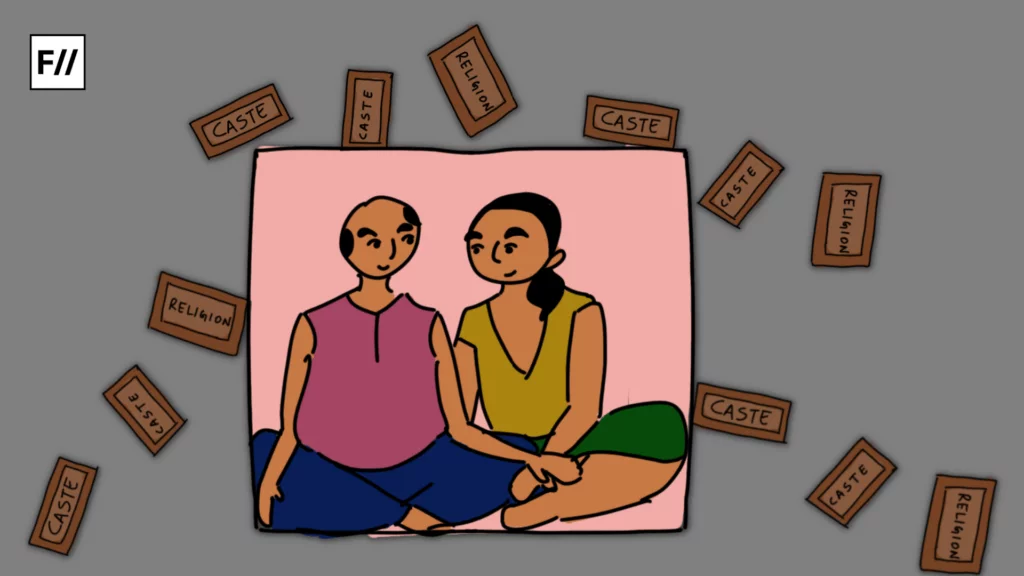There was been an influx of news around “the 15-year-old girl from Bihar” who cycled from Gurgaon to Darbhanga along with her injured father. Jyoti Kumari, who covered the distance of over 1200 km in 7 days has been applauded for her bravery and skill all over social media, including a tweet by Ivanka Trump who called the situation a “beautiful feat of endurance & love.” In addition to this, Jyoti was offered a trial by Cycling Federation and an offer to sponsor her education. This situation leaves a lot to unpack for us, concerning the issue of romanticisation of poverty, struggle, endurance and agency.

What Has Been Happening?
There have been countless migrant workers rendered jobless and hopeless with the nation-wide lockdown implemented to curb COVID-19 cases. For weeks, news channels, print media and social media platforms have been filled with visuals of workers walking back to their homes for hundreds and thousands of kilometers. These workers walked for days, with few resources to their name, families, and a deathly fear of starvation, more perilous than contracting the virus. While there have been groups mobilising funds for these workers, there have been tons of people on Twitter condemning their movement back to their homes.
Out of food, money and being threatened by their landlord, the father and daughter had no other option but to join the rest of their family back home. The little money they had was spent on the second-hand cycle that Jyoti Kumari used to get them home in seven days. She recounted how many people were kind to them and also provided them with food along the way. Back to Darbhanga and quarantined, Jyoti was suddenly made the sensation all over media for her strength and courage.
Who Is Jyoti Kumari?
In such a scenario, people were surprised by this story of Jyoti Kumari who they found very inspiring. Jyoti, who is 15 years old, dropped out of school in class 8. She lived with her family in Gurgaon: her mother, Phoolo Devi, an Anganwadi worker and her father, Mohan Paswan, an autorickshaw driver. Her father was injured and both parents had little money left with the sudden lockdown.
Out of food, money and being threatened by their landlord, the father and daughter had no other option but to join the rest of their family back home. The little money they had was spent on the second-hand cycle that Jyoti used to get them home in seven days. She recounted how many people were kind to them and also provided them with food along the way. Back to Darbhanga and quarantined, Jyoti was suddenly made the sensation all over media for her strength and courage.
The Cycling Federation shocked by her skill and endurance offered her a trial and accommodation in Delhi, and Ivanka Trump called for her to be considered an inspiration. Various individuals, groups, politicians and political parties came forward to show their support; Rabri Devi offered to pay for her education, Akhilesh Yadav offered financial assistance to her family, Anand Kumar of Super 30 offered her free coaching, amongst considerations of making her the health ambassador of India!
However, this overwhelming coverage and support blankets the fact that one, it was out of desperation and not a choice that Jyoti Kumari took up this journey, and second, the fact that there are plenty of resources that the privileged can contribute in scenarios of suffering. It is also worthy to consider the narrative of endurance and inspiration that has been so common in local and international coverage which shoves accountability under the rug.
The Romanticisation of Poverty, Struggling and Suffering
There is a deep romanticization of struggle that has found acceptance and normalization, so much so that the privileged found it to almost be a trend to follow by listing out what they deem to be their struggles. There is an abundance of stories, films or documentaries which present to the viewer the person who has fought all odds to become successful, the one who works hard relentlessly, the diamond in the rough.
This struggle and suffering is romanticized even more for the poor as this narrative is made to be one size fits all, it becomes a test to which the poor would have to take and pass with flying colours to be considered worthy. This becomes clear with the offer of the Cycling Federation who offer rounds of trials to Jyoti Kumari and Kiran Rijiju stating that she would be accepted as a trainee at National Cycling Academy if proven to show potential.
The rush of financial packages, sports opportunities and support suddenly emerged when the person in question could prove their worth of reaching a high standard, more so because of their struggle to alleviate their own suffering. It provides relief to the state, which otherwise must be accountable to its citizens, as they believe they did their part and can now sit back, without any attempts to address the larger structural issues and the deeply rooted reasons for the suffering and struggling in the first place. This further continues the ‘poverty porn’ which constructs an aesthetic of the poor’s struggles and suffering for the consumption, inspiration and pleasure of a privileged audience.
However, this overwhelming coverage and support blankets the fact that one, it was out of desperation and not a choice that Jyoti Kumari took up this journey, and second, the fact that there are plenty of resources that the privileged can contribute in scenarios of suffering. It is also worthy to consider the narrative of endurance and inspiration that has been so common in local and international coverage which shoves accountability under the rug.
Endurance and Agency
The rags to riches narrative attributes the outcome of life to the individual. This proves harmful as it suggests that they exist in isolation and not in a society with its structures and forms of oppression. There is the question of agency when it comes to poverty. Poor people are considered to be lazy and unwilling to work hard to achieve success and what is considered a dignified life. This figures prominently in education when individuals who cannot make it to higher education or those who drop out do so because of their own lack of intelligence and hard work. It is believed that their failure to be retained in the system and further find secure jobs is not because of a system that works against them.
Also read: COVID-19 In India: The Shunned & The Forgotten Migrant Workers
Here, it is also crucial to bring up the questions of caste which have faced oppression for centuries, gender inequality, individuals belonging to the LGBTQAI+ community and the people with disabilities, all of whom are at a greater risk of discrimination, structural oppression and violence which pushes them to poverty. Despite obstacles at various stages because of their identity, it is up to the individual to work hard enough, to comply with the system in order to achieve a decent life, is a widely accepted notion. There is a greater emphasis on the individual’s agency and level of endurance which can determine their success. All the while, as discussed above, there is a glorification of their struggle and suffering.
What Can We Change? And How?
The most crucial aspect of a democratic state is accountability. It is the responsibility of the citizens to question their government on the conditions of the country and its people, especially if the people are a group which is suffering because of structural issues. While the aids and opportunities provided to Jyoti Kumari are important, it is the responsibility of the citizens to ask their governments why opportunities and funds cannot be provided to all children, if there is money to provide so much for this one child.
Lastly, there needs to more consideration to the way news and stories are presented to us, to rethink the kind of aestheticisation and romanticisation we consume and how it impacts the subjects who at the end inspire us. Jyoti is back home now, quarantined. Her parents have appreciated and considered all options. She wants to complete her education before committing to any other endeavor.
Also read: The Need For A More Humanitarian News Reporting During A Pandemic
References
- Super 30 founder Anand Kumar offers free IIT-JEE coaching to ‘cycle girl’ Jyoti Kumari
- From Gurgaon to Bihar, 15-Year-Old Girl Cycles 1,200 km With Injured Father
Featured Image Source: The Statesman
About the author(s)
A spoken word poet, writer and a graphic design enthusiast, studying education. Passionate about a wide range of things, anywhere from political theory to queer representation to artificial intelligence.




